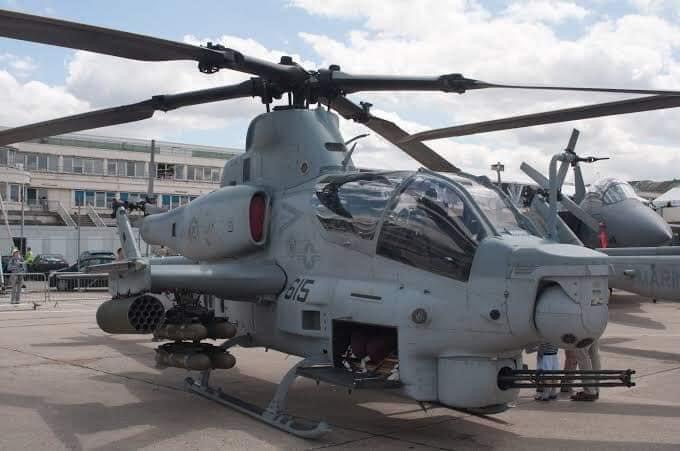There are no products in your shopping cart.
| 0 Items | £0.00 |


WASHINGTON has sold 12 Viper attack helicopters to Nigeria for about $1bn as part of the US plan to support the country in its fight against terrorism and religious extremism that is growing across West Africa.
In a significant move aimed at improving Nigeria’s defence capabilities, the US Department of Defence has confirmed the sale of the aircraft. According to the US Defence Security Cooperation Agency, the deal includes the procurement of 12 AH-1Z Viper attack helicopters, as well as 32 mission computers from Northrop Grumman.
This acquisition of 12 AH-1Z Viper attack helicopters will enhance Nigeria’s ability to conduct precision strikes and undertake rapid response operations for the country’s overall security and stability. Also, the US statement added that the strategic move is expected to bolster Nigeria’s ability to respond to security challenges and strengthen its overall defence posture.
Nigeria’s complex security challenges have displaced millions and claimed countless lives, making the purchase of the helicopter, scheduled for completion in June 2024, a significant upgrade to the country’s military assets. This sale follows the US State Department’s approval in April 2022 of Nigeria’s request for the helicopters, which includes guidance systems, night vision imaging systems and extensive training.
This deal not only enhances Nigeria’s military capability but also signifies a deepening partnership between the two countries in addressing security challenges in the region. The AH-1Z Viper is a highly advanced attack helicopter that will provide Nigeria with enhanced capabilities to conduct a wide range of military operations, including counter-insurgency and counter-terrorism efforts.
Also, the inclusion of 32 mission computers from Northrop Grumman, will further augment the effectiveness of the helicopters by providing advanced mission planning and execution capabilities. This deployment of advanced attack helicopters in Nigeria is expected to have a ripple effect on the security dynamics of West Africa, potentially influencing the balance of power and security architecture in the region.
Furthermore, the increased capabilities of the Nigerian military could lead to a more assertive role in addressing security threats not only within its borders but also in neighbouring countries, thereby reshaping the regional security landscape. This collaboration between the US and Nigeria in strengthening defence capabilities reflects a shared commitment to enhancing regional security and countering transnational threats.
As both nations work together to enhance regional security, the impact of this strategic move is poised to resonate across West Africa. This announcement has sparked discussions on the geopolitical implications for the region, highlighting the potential impact on the regional security landscape.